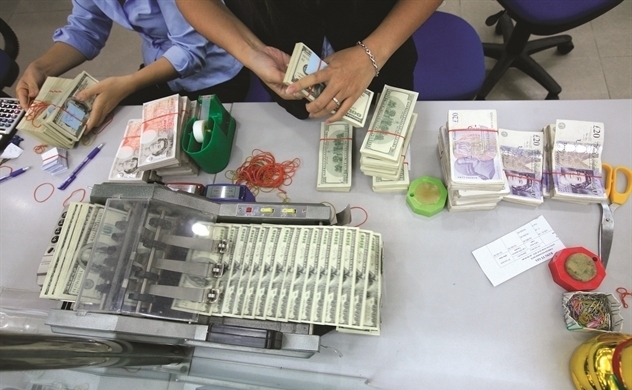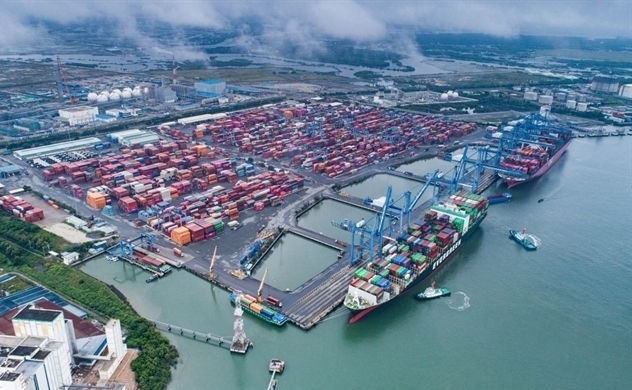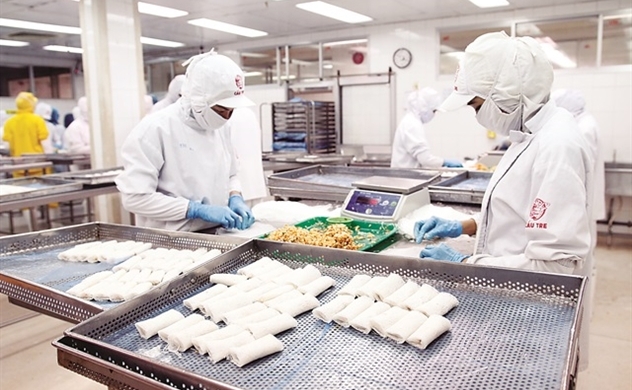Straighten cross ownership in banking sector

Photo: Quy Hoa
It can be seen that, after more than 10 years after the "election of Kien" to manipulate banks, cross-bank ownership is still a major concern of the Vietnamese financial system. In particular, this risk flared up again when a legal event of SCB Bank and Van Thinh Phat Group occurred in October 2022.
According to Dr. Nguyen Tri Hieu, a banking expert, tightening cross-banking ownership is very important because this is the cause of crises in banks. The previous incident at 3 banks, OceanBank, GPBank and CB (Construction Bank), leading to the State Bank's compulsory purchase at 0 dong is also partly due to cross-ownership.
Currently, the handling of cross-ownership between banks is handled through regulations on limits and safety ratios in the operations of credit institutions and foreign bank branches.
The Draft Law on Credit Institutions (amended) with adjustments to the share ownership ratio of individual shareholders, institutional shareholders, shareholders and related persons of that shareholder, respectively, must not exceed over 5%, 15%, 20% down to 3%, 10% and 15%.
However, the reality shows that the adjustment of the ownership ratio has not solved the root of cross-ownership when the lease arises, thanks to the holder of the share name to increase the ownership share in order to dominate and control the company. some credit institutions. Even if they only hold 1% of the shares, they can still dominate a bank.
Meanwhile, cross-ownership not only owns capital but also owns banking activities such as investment and credit. This variation is also very dangerous as it will distort economic activities and affect the general environment.
In addition, cross-ownership in the banking system can cause systemic risk when increasing virtual capital through borrowing for investment, mutual capital contribution, distorting banking governance as well as risk assessment. risk, provisioning or monitoring financial activities.
Currently, there are up to 50 banks operating and up to now, the management agency has not recorded the case of cross-ownership in the banking sector on the records and books.
However, the State Bank admits that preventing cross-ownership in banks is difficult because it involves many subjects under the management of ministries/sectors while the State Bank only manages financial institutions. credit bureau.
Dr. Le Xuan Nghia, a member of the National Monetary and Financial Policy Advisory Council, explains that detecting cross-ownership is challenging. While bank inspectors can detect it, it's not always possible to identify manifestations that require the intervention of an investigating security agency. This is particularly relevant in the context of banking, which is the root of monetary security risks.
Before the new development, the State Bank has included in the inspection plan in 2023 the inspection content on the transfer of shares and shares of credit institutions that may lead to the acquisition and domination; providing credit to a large group of customers (concentrating credit related to the real estate sector; major shareholders, related persons of major shareholders of credit institutions...).
The revised Credit Institutions Law is designed to limit manipulation and cross-ownership in banking activities. The overall assessment shows that a thorough containment requires many tools and solutions from many different agencies, such as transparency of databases, transactions of capital, shares, enterprises... " Only with this regulation, if shareholders properly implement it, they will also limit risks to banking activities, but thoroughly, it will require synchronous solutions, "said Governor of the State Bank of Vietnam. Nguyen Thi Hong stated.
Economist - Dr. Huynh The Du also said that there should be a mechanism to trace the origin of assets, transparency of information so that anyone can find out that Mr. A's shares are involved. to business B, business C, or even business X, Y, Z.
According to Professor - Dr. Tran Ngoc Tho, University of Economics Ho Chi Minh City, most countries such as the US, UK, China... put banks under the supervision not only of the central bank, but also of the central bank. at another prudential monitoring organization. Laws in many other countries also give governments considerable discretion to protect the confidence of the banking system. This multi-layered and tight supervision leaves no chance for bank manipulation activities to take place.
Same category news
-
Huyen Hoang
-
Arthur Do và Nick Wood
Latest news
-
Huyen Hoang

 TIẾNG VIỆT
TIẾNG VIỆT 






_291615658.jpg)









